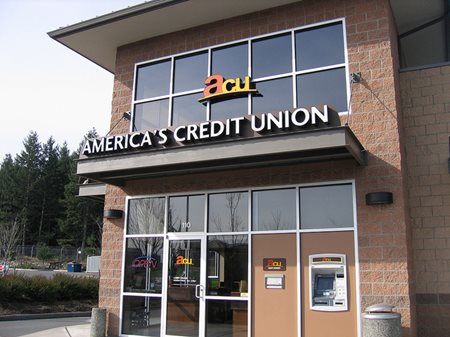Finding a home for your money is important. It’s also a very confusing decision as there are more banking options than you can count on one hand. Do you use a bank or a credit union? Or just stuff your cash under your mattress? We certainly don’t recommend the latter, but we can help you weigh the pros and cons of using a credit union versus a traditional commercial bank.
After the recent recession and housing collapse in America, banks don’t have the reputation that they once did. More and more people are getting fed up with their yearly multi-million dollar profits and fees that cost you money in the end. However, banks do have a few advantages like having open membership and often nationwide or regional locations, which is a benefit for truck drivers who travel the country for weeks on end.
Also Read: Everything you need to know about financing a truck
According to the Credit Union National Association, over 100 million Americans use approximately 7,000 credit unions across America today. So what makes a credit union different than a bank? Credit unions are not-for-profit therefore their CEOs aren’t making millions of dollars a year in bonuses. Since credit unions are nonprofits, they can offer you higher interest rates on savings accounts and lower rates on loan products meaning you get more for your money. Banks are owned by their stockholders. Credit unions, however, are a cooperative, which means it is owned and operated by its members. You have a say in your credit union’s decisions. Since a credit union is membership-based, you will have to meet certain requirements. Membership varies, but it could range from your employer to where you live. So, what do you choose – credit union or bank?

The Pros and Cons of Credit Unions
- PRO: Credit unions generally offer higher interest rates so you’ll get a better bang for your buck. Credit unions rates typically range from 4 to 10 times higher than what you would get at a commercial bank. However, online banks tend to still be the highest in the industry.
- PRO: Unfortunately, there is no such thing as a free loan. However, credit unions have some of the lowest APRs on mortgages, personal loans, and even credit cards. There is no reason you should pay more than you should.
- PRO: In a world where the banking industry will nickel and dime you for everything, credit unions have far fewer fees compared to national banks. Most credit unions offer checks, withdrawals, and electronic transactions for free. Additionally, many offer free checking accounts without a monthly minimum or service charge. That alone can save you hundreds of dollars a year, meaning more money in your pocket. Unfortunately, not every fee is excused in credit unions. Most will still charge for things like bounced checks and overdraft fees.
- CON: Credit unions offer fewer options than large commercial banks. For example, Bank of America offers 5 different types of checking and savings accounts, but most credit unions will only have one or two options.
- CON: Credit unions have far less physical locations than commercial banks. If you’re on the road a lot, like most truck drivers, you won’t find your local credit union across the country. If you live far from the credit union branch then you might have to mail in your checks.
The Pros and Cons of Commercial Banks
- PRO: Large commercial banks are very accessible across a region or the country. They have multiple branches and ATMs on every corner. Banks also have more money to invest in mobile and online tools and technology that make your experience and accessibility on the road easier.
- PRO: Bank accounts are open to everyone. There are no membership requirements to be met to open an account.
- CON: Banks have higher fees on everything from overdrafts to monthly maintenance fees. According to a recent Moeneyrates.com survey, the average monthly maintenance is about $12 or about $150 a year!
- CON: Some commercial banks have a reputation of bad customer service. Since 2012, banks have gotten better, however on the American Customer Satisfaction Index, banks still rank lower than credit unions.
The Final Verdict
Choosing which type of banking institute you would like to do business with is a personal decision. There are pros and cons to each institute. If you want to save more money and have a better customer service experience then credit unions are the way to go. However, there are membership requirements and credit unions often only have a few physical locations. If accessibility and having the best mobile technology is what you need, choosing a bank is probably your best move. Each bank is different. You have large national banks like Bank of America and small regional banks. Regional banks often run more similar to credit unions. Whether you choose a credit union or bank, remember to make sure you are putting your money to work for you.
Image Source - https://www.flickr.com/photos/i5design/